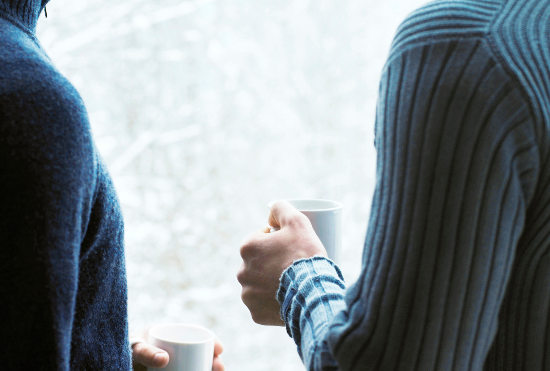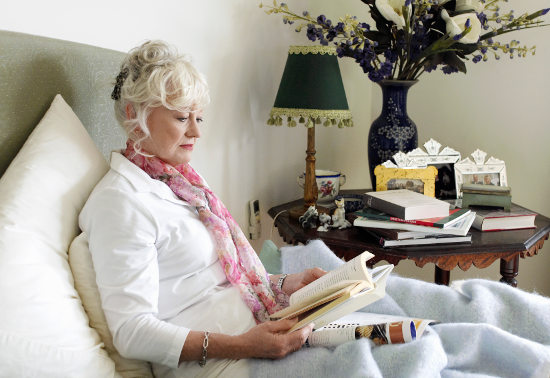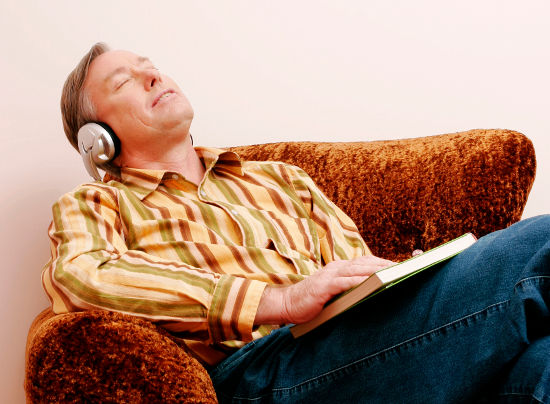With the days getting shorter, the colder temperature sweeping the nation, and the incoming snow for certain parts of the country, one can say that we’re starting to get into the winter season. However, as this time brings lesser sunlight light and more holiday cheer, our health can be greatly affected. The winter months can affect our eating habits and behavior, but it can also affect our sleeping patterns as well. Getting a good night’s sleep is crucial for everyone, especially for those trying to have a more healthy senior living and lifestyle.
According to WebMD, while the average adult requires the same of sleep through their years, it is different for seniors. Elderly individuals require more sleep than other age groups. Unfortunately, they are getting much less sleep than they need.
How Do the Colder Months Affect Sleep for Seniors?

While winter weather differs throughout the many parts of the country, three common winter-related effects influence our sleeping methods. These three factors are diminished light, cold weather environments, and the eating habits that occur during these months.
The lesser amount of natural light we get during this time causes our bodies to produce melatonin. Melatonin helps humans and animals sleep. It can be found in foods or supplement pills, but the most common source is from our bodies. The lack of light means our pituitary glands will secrete lesser amounts of melatonin. Additionally, the colder weather makes our bodies colder. And since we are colder, we tend to crank up the heat in our homes, causing drier mucous, which protects the mouth and nose from potential cold and flu viruses.
Finally, our eating habits influence our sleep and our healthy senior living. During this time of year, we consume more foods. Particularly, we consume more starches and sugary foods, which can keep us up and also make our bodies less productive.
What Kind of Sleep Problems Affect Seniors the Most?

To further understand the influence of cold weather on seniors and their sleeping habits, you must understand the most common sleeping problems that occurs in seniors. During the winter months, these problems could occur and likely make sleeping more of a hassle.
Sleeping Problems Caused by Current Medical Issues
While people associate older adults suffer from primary sleep disorders, a lot more seniors tend to get sleeping problems due to “secondary” issues. By “secondary”, it means sleep problems are due to an underlying medical condition that an individual current has.
For example, there can be seniors with sleeping problems due to urinary problems, causing them to get up at night to use the bathroom. Because they are constantly up, their sleep pattern keeps on getting interrupted. Likely as soon as problems like these are taken care of or lessened, the likelihood of sleep problems will decrease, thus returning to a healthy senior living and better sleeping habits.
Sleep-Related Breathing Disorders
Breathing disorders that happen during sleep are very common and cover a wide range of health and sleep issues a senior might be facing. The most common problem is sleep apnea, a condition where a person will have frequent pauses in their breathing during the night. This condition can lead to heart problems like heart failure and stroke. If you believe you have sleep apnea, a medical professional can help get you started on treating it and might help get you into sleep study treatments.
Restless Leg Syndrome (RLS)
This is a syndrome caused by itching, crawling, and/or restlessness while trying to sleep. While not as common as other sleeping problems, they still can be present in some seniors. Most figure that this problem is caused by anxiety or some form of insomnia. A medical check-up is suggested should this heavily affect one’s sleep.
Insomnia
Insomnia is the inability to fall asleep or stay asleep causing inadequate daytime activity and is the common in everyone, including seniors. Regardless if you are having certain health problems or engaged in a healthy senior living lifestyle, you can still have this condition. Lot of causes can lead to insomnia, from anxiety to fatigue to many others. Most medical professionals require various methods of treatment from simple medication to certain sleep treatments.
Ways to Healthy Senior Living and Better Sleep During the Winter

As we get older, we need to sleep better. However, the cold weather can be a hinderance. If you take a few commonly known steps for sleeping, you should be able to get a full night’s rest.
- Take warmer baths. When you step out of the shower or tub, your body temperature will make you feel tired but relaxed enough to help the body get more sleep.
- Relax and calm down before sleeping. At this time of year, can seem hectic due to the shopping and family gatherings. Find ways to wind down and relax your mind like reading a book. The result should be a better night’s sleep.
- Drink and Eat Less Before Bed. This time of year, you’ll be consuming more food and alcohol. Sugary foods can keep you up and alcohol can make it harder to stay asleep. This because it can make you wake up in the middle of the night often.
- Exercise more often but not before bed. Exercise can help your body stay fit and active. However, doing workouts before bed can keep your body active, thus preventing sleep.
These are just a few tips that can help you get better sleep during this time of year. However, they should be able to let seniors enjoy the colder weather and the holidays while maintaining a sense of healthy senior living.




